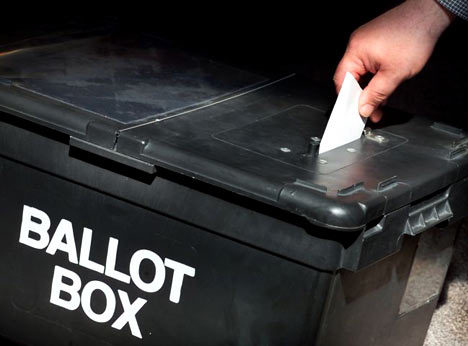 Next year will be an election year. Though it now looks unlikely that Gordon Brown will call a general election, both local and European elections are scheduled for June 2009. These will undoubtedly be important, as a test of both how people feel about the government’s handling of the economic crisis and their views on the Lisbon Treaty, which the Irish are likely to have voted on again.
Next year will be an election year. Though it now looks unlikely that Gordon Brown will call a general election, both local and European elections are scheduled for June 2009. These will undoubtedly be important, as a test of both how people feel about the government’s handling of the economic crisis and their views on the Lisbon Treaty, which the Irish are likely to have voted on again.
But a number of elections held overseas next year will have a much greater impact on Britain’s security and wellbeing than any of these polls.
The most important election is that of a new Afghan president in late 2009. The poll will be the second vote for the presidency in Afghanistan‘s history. The first was in 2004, when Hamid Karzai won a five-year term. President Karzai, whose government relies on international funds and troops, is the only significant figure to declare his candidacy so far, and the consensus is that – despite his failings and growing unpopularity – he would be tough to beat. The big question is whether polling can take place in the southern and eastern parts of the country. If not, it may fuel the Pashtun sense of disenfranchisement that the Taliban insurgency relies on.
India will hold parliamentary elections in May 2009, which will pit Indian Prime Minister Manmohan Singh against Lal Krishna Advani of the Bharatiya Janata Party. Following the Mumbai attacks, the election will determine the future course of Indo-Pakistani relations and the extent to which the Kashmiri conflict may be resolved. BJP has long charged that Congress is insufficiently aggressive in combating terrorism and is more likely to ratchet up tensions with Pakistan.
Across in the Middle East there are likely to be elections in Palestine, Israel and local elections in Iraq. A Palestinian election is not currently scheduled, but President Mahmoud Abbas has said he would call for elections in 2009 if his secular Fatah movement and its Islamist rivals Hamas do not reconcile by the end of this year. With no rapprochement between the parties in sight, elections are looking increasingly likely.
A second win for Hamas – or a boycott of the polls in Gaza – would make any Middle East Peace initiative by the Obama administration exceedingly difficult. So would a win for Benjamin Netanyahu and Likud, who have opened a large lead of six parliamentary seats over Kadima, the current governing part.
Iraq’s provincial elections in October will be the battleground for a fierce power struggle among sectarian and ethnic parties that could redraw the country’s political map. Major players – such as the movement of populist Shi’ite cleric Moqtada al-Sadr and Sunni Arab tribal groups – will be competing for the first time and are expected to make gains. The results will provide early clues on how parties will fare in parliamentary elections scheduled for 2009 – polls that will determine if Shi’ite Prime Minister Nuri al-Maliki retains power.
The fourth set of elections that the British government will take a keen interest in will take place in South Africa. Though ANC leader Jacob Zuma is the frontrunner to be the next South African president, his political ambitions are clouded by a corruption investigation tied to an arms scandal and his relationship with a former financial adviser who was convicted of fraud and bribery. However, the ANC leader has won praise for taking a tougher stand on Zimbabwe’s crisis than former President Thabo Mbeki, who was seen as too close to Robert Mugabe. Any resolution of Zimbabwe’ situation will depend on who is elected to lead South Africa.
Finally, and closer to home, the Germans are will go to polls to pass judgment on the “grand coalition” of CDU and SPD led by Angela Merkel. Surveys show the CDU with a lead of more than 11 per cent over the SPD, and Merkel neck-and-neck with Foreign Minister Frank-Walter Steinmeier, the SPD candidate for the chancellorship. The first test of voter support comes on 18 January when the SPD and CDU face off in an election in Hesse. The outcome of the general election will likely determine how tough a stance Germany will take on Russia and the extent to which the German government will add more troops to the Afghan mission.
So, in 2009, Britain is going to be affected by a number of elections held across the world; as people pass judgment on their leaders, their governments and key policies. What a shame that Britons most likely won’t be able to do the same.






Comments